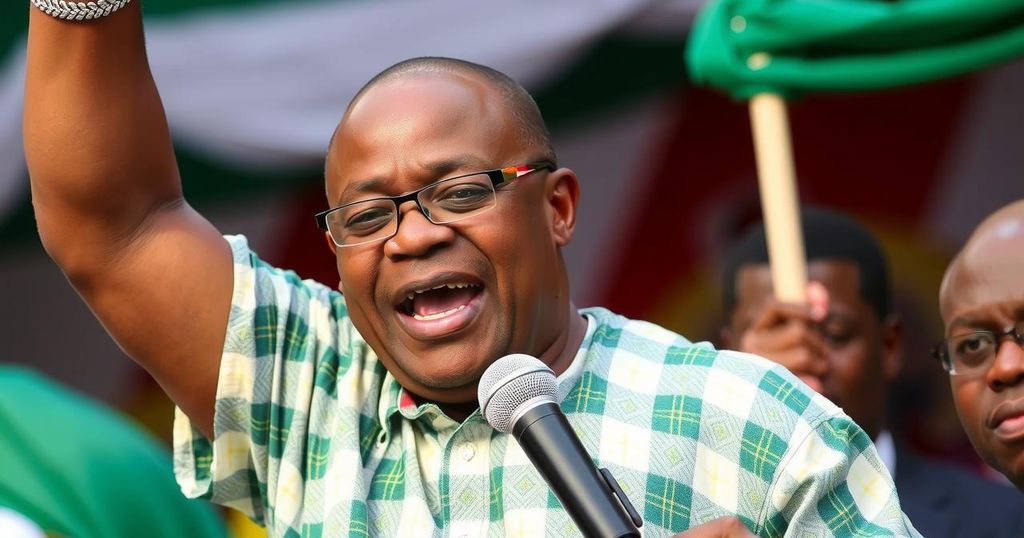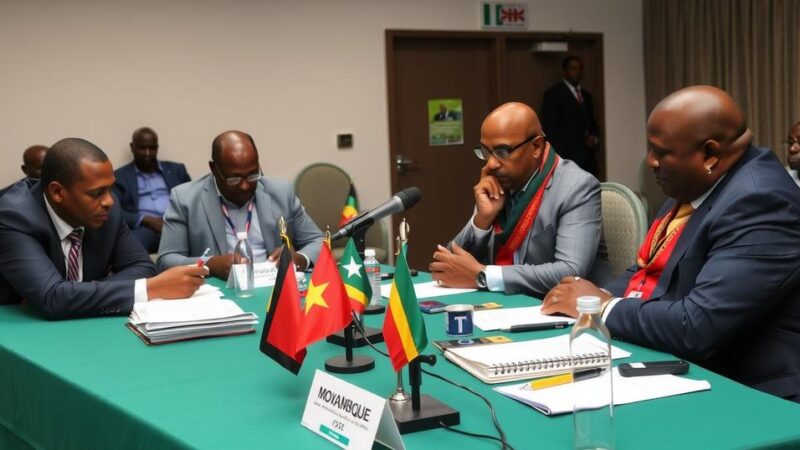John Mahama has officially won Ghana’s presidential election, receiving 56 percent of the votes, defeating ruling party candidate Mahamudu Bawumia. The election reflects widespread dissatisfaction with the NPP government’s economic policies, leading to Mahama’s promises of reform and economic revival. Voter turnout was 60.9 percent, signifying a shift in public sentiment favoring change after years of economic hardship.
In a decisive victory, Ghana’s opposition leader John Mahama has officially won the presidential election, securing 56 percent of the votes. Mahama’s main rival, ruling party candidate Vice President Mahamudu Bawumia, garnered 41 percent, according to the electoral commission’s official results. This outcome has ended eight years of governance by the New Patriotic Party (NPP), which faced criticism for poor economic management amidst rising living costs, ultimately culminating in an IMF bailout and a national debt default.
Mahama, 66, expressed gratitude to his supporters in Accra, reflecting on what he termed “the darkest periods of our governance.” He emphasized the importance of this electoral mandate as a reminder of the expectations of the populace and affirmed his commitment to transformative reforms for economic recovery. Bawumia, a former central banker, promptly conceded defeat, acknowledging the electorate’s desire for change and stating that the NDC had also claimed victory in the parliamentary elections, although official tallies are still pending.
During his campaign, Mahama promised a comprehensive reset of Ghana’s economic policies, indicating the need for renegotiations concerning the $3 billion IMF loan agreement. He cautioned that the path ahead would be challenging due to the substantial economic difficulties left by the previous administration. While Ghana has maintained a tradition of democratic stability, the economic crisis was a predominant theme in this election, characterized by a significant debt crisis, currency devaluation, and other financial challenges. The overall voter turnout was reported at 60.9 percent, a decrease from the previous election’s 79 percent.
The election results reflect a pivotal moment for Ghana, marked by widespread discontent with the ruling party’s economic track record. The NPP government, under President Nana Akufo-Addo, struggled with significant economic challenges including inflation peaking above 50 percent, widespread frustration over living conditions, and an eventual need for an IMF bailout. Following a history of alternating governance between the NDP and NDC since the return to multi-party politics in 1992, Mahama’s return to power signals potential shifts in policy and governance as he vows to tackle the issues plaguing the nation. The election’s backdrop of economic uncertainty influenced voter sentiment, facilitating Mahama’s comeback after two unsuccessful attempts in prior elections.
In summary, John Mahama’s election victory represents a significant shift in Ghanaian politics, as voters opted for change in the face of economic grievances. The former president’s experience and promises of reform may pave the way for renewed governance strategies aimed at addressing the pressing economic challenges that have plagued the nation. His success also highlights the electorate’s responsiveness to economic management and the demand for accountability in leadership amidst tumultuous economic circumstances.
Original Source: www.france24.com







